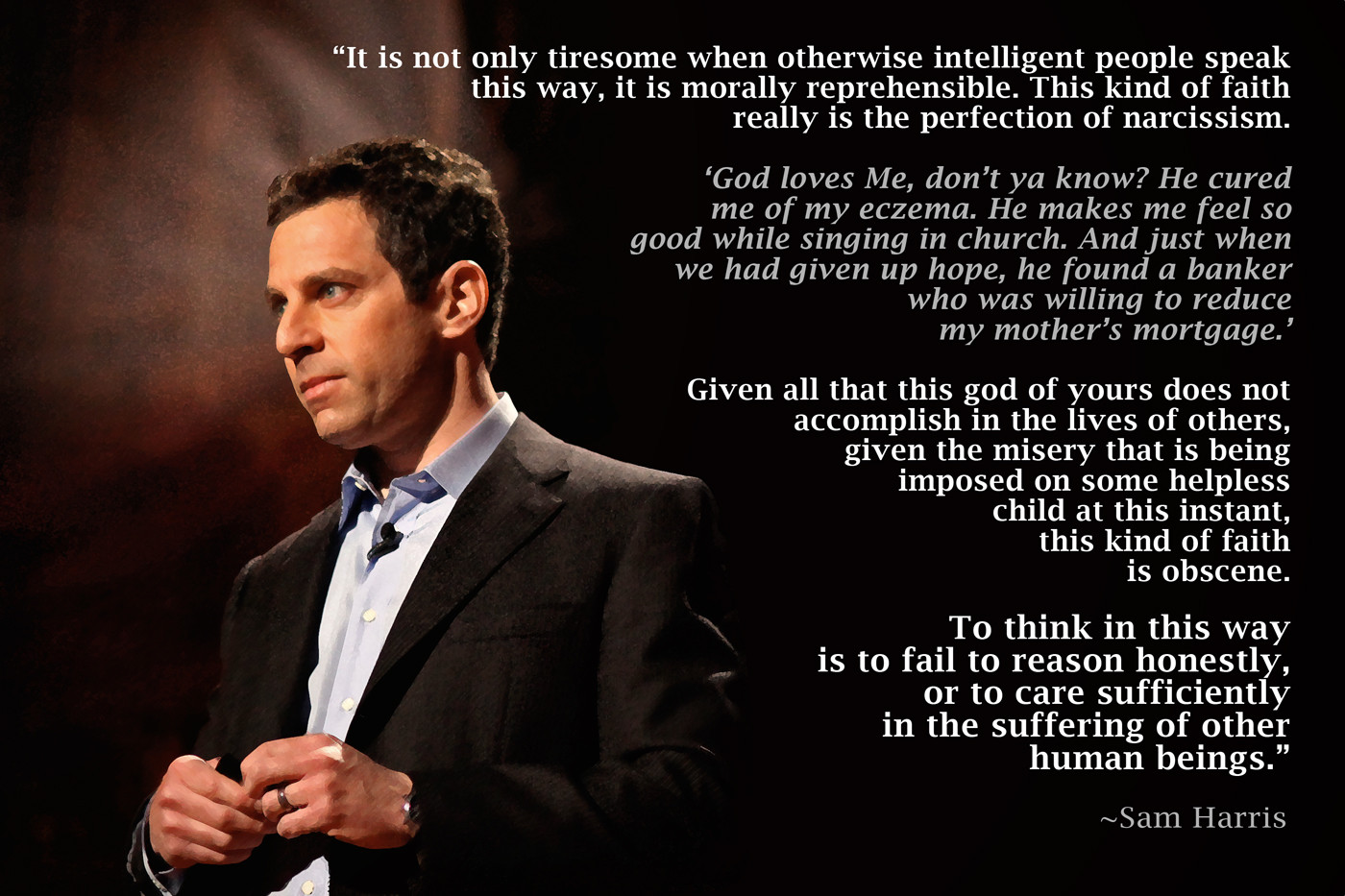Redefining the Divine | Science, Faith, and the Future of God | Exploring the Intersection of Rationality, Spirituality, and Societal Evolution in a New Age of Enlightenment
 In a thought-provoking Nightline debate, Sam Harris challenges us to reexamine the nature of divinity in the modern world. The discussion, as featured in the original article on SpeciesUniverse.com and its associated video excerpt, delves into whether science ultimately renders God obsolete or, conversely, brings us closer to a deeper understanding of the divine. Harris’s insights invite us to consider not only the traditional religious narratives but also a more nuanced conception of God as intertwined with the very laws that govern our universe.
In a thought-provoking Nightline debate, Sam Harris challenges us to reexamine the nature of divinity in the modern world. The discussion, as featured in the original article on SpeciesUniverse.com and its associated video excerpt, delves into whether science ultimately renders God obsolete or, conversely, brings us closer to a deeper understanding of the divine. Harris’s insights invite us to consider not only the traditional religious narratives but also a more nuanced conception of God as intertwined with the very laws that govern our universe.
At the heart of the debate lies a critical distinction: while many people envision God as a personal deity—a creator who intervenes in human affairs—others have embraced a more abstract interpretation, equating God with pure consciousness or the natural laws of existence. As highlighted in the transcript, Harris emphasizes that the conversation often splits into two distinct narratives: one rooted in conventional religious belief and another exploring spirituality as an expression of the cosmos itself. This duality not only underscores the complexity of modern faith but also reflects broader shifts in how society conceives of existence.
Supplementing Harris’s perspective, additional online resources have expanded on this evolving discourse. Various scholarly websites and platforms dedicated to science and spirituality point to a growing trend where modern physics—quantum mechanics, relativity, and cosmology—offers fresh insights into the nature of reality. These sources argue that when we frame God in terms of natural laws and cosmic mystery, we unlock a dialogue that transcends traditional religious debates. Such perspectives are increasingly visible on interdisciplinary blogs and academic forums, which advocate for a synthesis of rational inquiry with the search for meaning.
The debate also touches on the political implications of religious belief in contemporary society. As Harris notes, belief in a traditional, interventionist God remains deeply embedded in the cultural and political fabric, often serving as a litmus test for political credibility. In his pointed critique, he warns that in certain political contexts, success may hinge less on individual merit and more on one’s willingness to subscribe to a form of faith that resonates with the electorate. This observation challenges us to consider how religious narratives continue to shape policy, power dynamics, and even personal identity in a rapidly evolving world.
A further dimension of the debate emerges when considering the implications of modern science. Concepts from quantum mechanics and relativity have not only revolutionized our understanding of the physical world but have also prompted a reassessment of the mystical. The transcript reminds us that while some dismiss these scientific insights as mere technicalities, others see them as profound indicators of an underlying cosmic order—a kind of divinity that is inherent in nature itself. This merging of scientific rigor with spiritual inquiry is echoed in various online publications that advocate for a harmonious dialogue between empirical evidence and metaphysical wonder.
By incorporating insights from both the article and the video, we begin to see a clearer picture of the future of spirituality. Rather than engaging in a simplistic binary—where science either confirms or negates the existence of God—the debate invites us to explore a more integrated vision of reality. In this emerging paradigm, the divine is not an external, anthropomorphic entity but a dynamic interplay of energy, consciousness, and natural law. Such a perspective challenges us to evolve our definitions and encourages a more flexible, inquiry-driven approach to understanding existence.
Ultimately, this debate on the future of God compels us to reflect on our own beliefs and the evolving nature of spirituality in the modern age. Whether one views God as an invisible creator or a manifestation of the universe’s intrinsic order, the conversation is a call to embrace complexity and foster a dialogue that spans both scientific inquiry and spiritual introspection. For thinkers like John and for all curious minds, this discourse represents a crucial step toward a more enlightened and integrated perspective on life.
Key Takeaways:
- Modern debates on divinity urge us to reframe traditional religious narratives and consider the role of natural laws and consciousness.
- The intersection of science and spirituality opens up new avenues for understanding our place in the cosmos, challenging conventional dichotomies.
- Political, cultural, and social implications of religious belief continue to influence public discourse, necessitating a more nuanced and reflective approach to faith.
“the god that our neighbors believe in is essentially an invisible person”
Call to Action:
Join us on SpeciesUniverse.com to explore further discussions and insights at the crossroads of science, spirituality, and society. Dive deeper into these thought-provoking conversations and share your perspective as we collectively redefine what it means to understand the divine in our ever-evolving universe.
For the full debate follow this link here and follow along as Dan Harris weaves us through some of the mainstream thinkers in this arena:
Does God Have a Future? NightLine DEBATE FULL
John
~Comments always welcome…
Relevant Content:
References:
- logicalthinkingorg (YouTube Channel – Excerpt))
- ChristopherHitchslap (YouTube Channel – Full Debate)

Leave a Reply